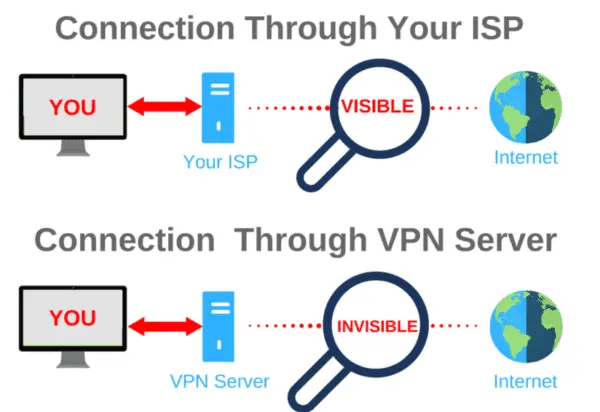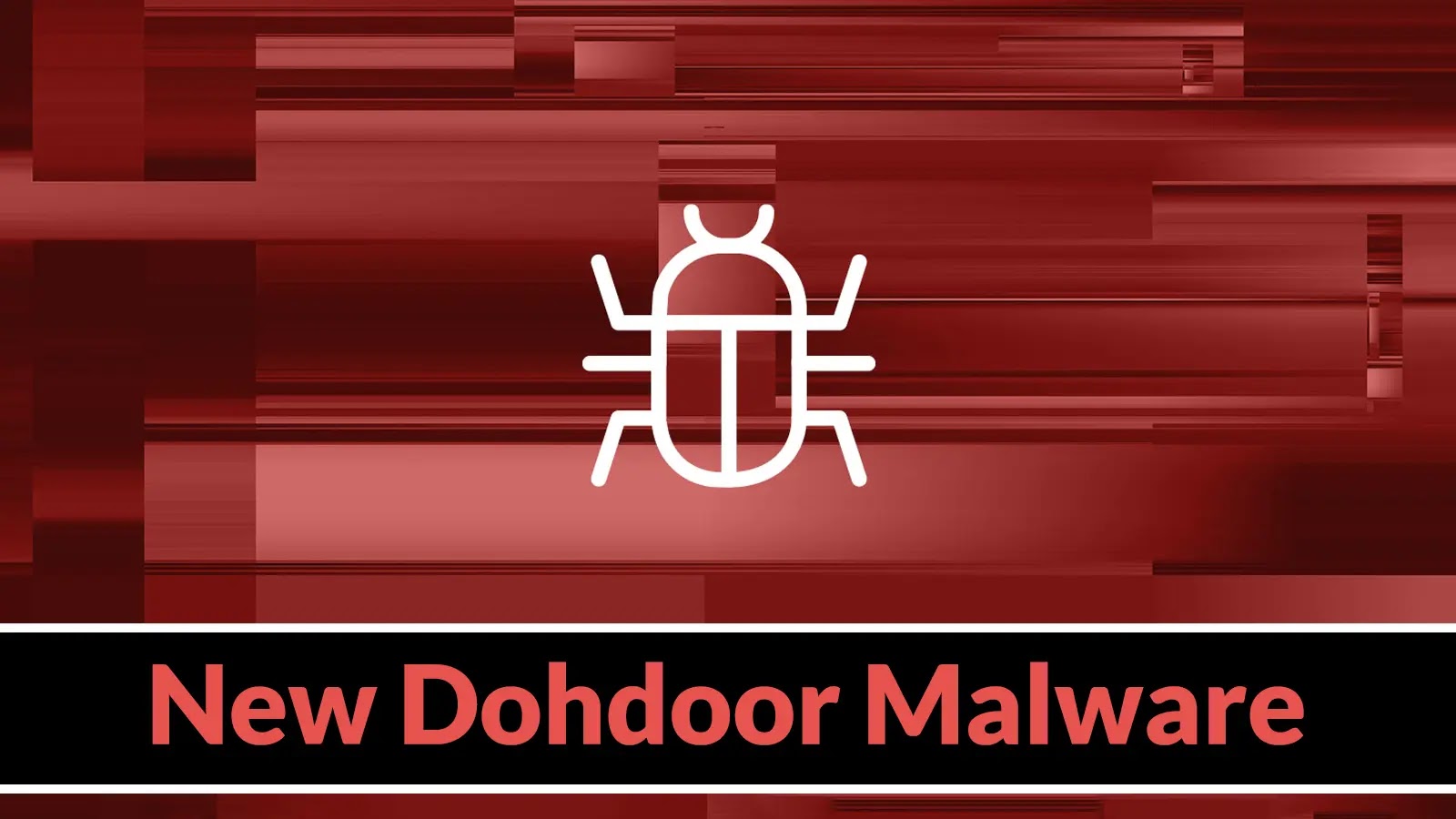What is a VPN? Everything Explained [Beginner-Friendly]

What is a VPN? You might have come across the term before, but do you know what it means and how it works? I’ll lay it all down for you.
Did you know that VPNs not only protect your data but also help you find better online deals? By the end of this article, you’ll understand what a VPN is, how it works, and its many benefits. Let’s start from the beginning.
What is a VPN?
A Virtual Private Network (VPN) is a technology that establishes a secure, encrypted connection between your device (such as a computer or smartphone) and a remote server operated by the VPN provider. This connection is established over the public internet
There are two types of VPNs: commercial and enterprise. When people talk about VPNs, they usually mean commercial ones, which individuals and small businesses use for online privacy and security.
Who needs a VPN?
Anyone who is online can benefit from using VPN:
- Journalists, activists, and people living in censored countries need to securely communicate and access restricted information without government surveillance
- Torrent users who want to download files anonymously and protect their online activity from ISP restrictions and potential copyright strikes
- Online gamers who want to reduce lag and access servers in different regions or geo-restricted games
- Streaming enthusiasts who wish to access a wider range of content by circumventing geographical restrictions on streaming apps like Netflix, Hulu, or Max
- Remote workers and businesses need a secure connection to access company networks and sensitive data from anywhere
- Organizations operating in regulated industries aiming to comply with data protection regulations and maintain integrity
Even if you’re just doing simple things online like checking emails or reading news, you’re still vulnerable to hackers and snoops. They can learn more about you than you realize. That’s where VPNs come in handy—they help protect your personal information and keep your online activities private and secure.
How does a VPN work?
A VPN (Virtual Private Network) service operates as a network of interconnected computers accessible via the internet. When you use a VPN, you reroute their internet connection through one of these servers instead of directly connecting through their Internet Service Provider (ISP).
By doing so, you can mask your true IP address, replacing it with one provided by the VPN server. Additionally, all data transmitted between your device and the VPN server is encrypted, ensuring that it remains secure and private from potential eavesdroppers.
Let’s use a simple example to explain. Imagine you’re driving, and a traffic helicopter is following you. You’re exposed—everything you do is visible.
But what if you drive into a tunnel? Now, the helicopter can’t see what’s happening inside. That’s the privacy a VPN provides.
You may think of a VPN service as a series of computers networked together over the Internet.
As a result, your real IP is hidden, and the one assigned by the VPN server will show up instead.
Most importantly, all your network traffic will be encrypted so nobody can snoop into your personal affairs.
This is how comfortable a VPN connection can make you feel.

When you connect to the Internet through a VPN server, all your data remain hidden and secret
But let’s see all the benefits you will enjoy by subscribing to one of the best VPN services.
What are the benefits of using a VPN connection?
If you’re online, you’re at risk. The Snowden case exposed this. Even seemingly harmless things, like Internet-connected toys, can pose privacy risks. The point is clear: accessing the web exposes you to dangers like privacy violations and identity theft.
All these problems may be just a nuisance but often they involve legal issues or will cost you a lot of money.
This is what a VPN is for and why you should use one:
1. Protecting your online privacy
When you use a VPN, your real IP address is hidden. For example, if you’re in San Francisco but connect to a server in Los Angeles, you’ll appear to be browsing from LA. Similarly, choosing a server in Japan makes it seem like you’re browsing from Japan, no matter where you actually are.
By hiding your IP address (and therefore location), a VPN protects all your data from hackers, cybercriminals, and government surveillance.
With this information concealed, no one can track your online activities or know your location. In short, a VPN ensures your online privacy and security.
2. Increasing your online security
When you use a VPN app, your online activity remains confidential, preventing unauthorized access. Companies track your online behavior for targeted ads, but this data can also be exploited. A VPN encrypts your data, making it unreadable to hackers, ensuring your privacy.
Companies use your data to send you targeted ads. That’s not all that bad, but it can also land in the hands of cybercriminals, government agencies, or ill-intended people. The risk is high.
As a result of this encryption, even if a hacker or any other entity intercepts your information, it will be impossible to read and therefore useless.
With a VPN your private life will stay private.
Wondering if a VPN can also cut down pop-ups and trackers? Read will a VPN block ads to see what VPNs can block, what they can’t, and when to add a dedicated ad blocker.
3. Connecting to public WiFi safely
How often do you use public or free WiFi connections? We all use them whenever we can, especially when we travel or go to our favorite restaurant or coffeehouse.
But do you know that public WiFi hub spots are a favorite fishing pond for hackers?
WiFi hubs are highly unsafe and unprotected.
Since they are often free, nobody will invest the money needed to make them safe.
Hackers even set up fake WiFi hotspots to steal your data. If you happen to connect to one as you surf the net the hacker will steal sensitive data from your device.
Every time you connect to a public Wi-Fi network, you never know who is looking at your data unless you protect it using a VPN connection.
4. Protecting your portable device
I’m sure you’re quite careful about protecting your computer at home. You may do a periodic cleanup, install an antivirus software, and so on.
But what about your smartphone or tablet? Do you have an antivirus software installed? Most likely no.
Many of us do not feel the same urge to protect our mobile devices as we do our laptops and desktop computers.
That makes these devices highly vulnerable. That being the case, the risk of internet privacy and security issues is extremely high.
The best VPNs on the market can protect your mobile devices easily.
You can find several user-friendly and reliable VPNs for Android and VPNs for IOs that make protecting your mobile device like a walk in the park.
5. A better online shopping experience
We just mentioned above that all your online activity is monitored. Online shops and e-commerce platforms are interested in your activity too, and they use it to their advantage.
For example, if you shop online for air travel, it’s a common practice for websites to increase the prices as you keep looking for flights.
Your active search is a signal that you really want those tickets and you may be even willing to pay a little higher price to get them.
Therefore, based on this information, they may decide to hide new offers from you. The same tactic is commonplace for most e-commerce platforms.
However, if you shop online through a VPN connection, the companies will not have any information about your search history.
Every time you go back to their platforms you will appear like a new user and that gives you a chance to find better prices.
Just give it a try and you will be surprised at how many times you will be able to save some bucks.
6. Bypassing geo-location and censorship
Some websites or their contents have limited availability, in just a few countries or regions.
For instance, if you have a US Netflix account but you want to watch it when you’re outside the US, you cannot.
If you are addicted to Spotify but you’re in a country where the service is not active, forget about your music. The geo-location will block your account.
The same is true when you are in countries with strong censorship. Try to use Facebook while in China, and you will quickly see that it doesn’t work.
The geo-localization is a problem for many travelers or ex-pats that cannot access their favorite content while abroad.
The same applies, for instance, if you want to watch sports live streaming online or movies online that are not available in the country where you live.
The geo-restriction imposes a heavy limit on what you can do online.
A VPN service, instead, will guarantee you access to all websites and online content you want.
Remember that you can fake your IP address and appear to connect from the country where your favorite website or streaming content originates.
This way you can easily geo-spoof location-restricted websites.
7. Safely downloading BitTorrent and P2P files
Warning: This practice may involve copyright violation, so it is not recommended.
If you’re crazy addicted to Torrent downloading, a top VPN will hide your online activity. It will also stop malicious users from stealing your information and bypass ISP speed throttling.
In this case, you need to select a highly secure VPN provider with a strong a no logs policy.
8. Improved streaming
Streaming online can become a nightmare if the connection is not fast enough or if you bump into the most annoying message This content is not available in your country.
A VPN service is a quick fix for both problems.
Most of the time, you may experience buffering not due to a real problem with your Internet connection but because you are the victim of throttling.
Throttling happens when your ISP (Internet Service Provider) slow down your internet connection because you are using too much bandwidth and they want to save it for other users.
When that happens, your online streaming experience will be marred only because your ISP decided not to provide the full service you paid for.
However, if you enable VPN, the ISP doesn’t know what you are doing online and therefore it cannot throttle your connection.
At the same time, the VPN allows you to connect to servers in every country around the globe to access content otherwise blocked.
Netflix, BBC iPlayer, Hotstar, SkyGo, and many more resources will be accessible from the place you are connecting from.
What can you do with a VPN?
It is easy for you to benefit from the service. You don’t need to know any technical jargon.
All you have to do is to download the VPN software into your device and set it up. If you’re not sure where to begin, follow our detailed tutorial on how to set up a VPN for step-by-step instructions.
The best VPN providers, like ExpressVPN, PIA, or CyberGhost have created software that makes using a VPN easy-peasy.
How to set up a VPN
If you are a new user, setting up a VPN on your device may sound difficult but it is not.
The most challenging step is probably to choose the best VPN for your needs.
Once you have made up your mind on which VPN to buy, these are the steps needed to buy a VPN connection:
- Go to the order page of the selected VPN provider and proceed with the payment.
- Download the VPN software compatible with your device
- Before you access the Internet, click the activation button
- You can now surf the net as you usually do but with the peace of mind of full protection.
To activate a VPN on your device requires only a few seconds but the benefits you can now enjoy are impressive.
All set up but can’t connect? Some networks block VPN traffic. Use our step-by-step guide to bypass VPN blocks on Wi-Fi, routers, and work networks.
If you need to disable it for troubleshooting, follow this guide on how to turn off a VPN safely on any device.
What is the difference between a free VPN and paid VPN
Searching online, you may find countless VPN providers and most of them offer a free service. Is it advisable to use a free VPN?
Even though a free service may be appealing to you, you must exert extreme caution when subscribing to a free VPN connection.
Most of these free VPN software are highly unreliable and do not offer adequate protection.
Actually, often they put your security and privacy at higher risk. Of course, not all free services are absolutely bad, there are some really good ones, although they have their limitations.
However, all free VPNs connections come with important flaws you must be aware of;
- Free VPNs need to make money to keep running. Many free providers sell your personal data to third parties to raise the money they need. This puts your privacy and security in danger and it is exactly the opposite of what a good and reliable VPN should do.
- During your connection, you will get tons of advertisements that in the long run will spoil your overall experience.
- It is not unusual for free VPN software to attach malware to your device. This practice is called malvertising and it exploits the malware on your device to show the ads the VPN has selected. Of course, once the malware is on your device it could expose your personal information or you can transfer it to other users.
- Free VPNs come with big limitations in their usage. The monthly amount of data you can transfer monthly and the connection speed make them practically useless for online streaming.
- Torrenting and P2P face harsh restrictions. Even if they are, the connection is so unsafe that you don’t want to use it for such sensitive tasks.
- Free VPNs have limitations. Therefore, you cannot unblock many geo-restricted websites. When it comes then to major services like Netflix USA, a free VPN is totally useless.
You may still use a free VPN provider for minor tasks only if they do not involve your sensitive data.
However, our advice is to limit the more you can the usage of VPNs for free. The downsides are way too many and at the end of the day, a top VPN costs you only a few dollars per month.
For such a small cost, there is no point in putting your security and privacy at stake.
What is a VPN for – Summary
Now, you don’t just know what a VPN is, but also how important it is for keeping your online activity safe.
Hackers are increasing their online activity, government agencies are more interested in your private life, and marketers desperately want to sell to you. With VPN, you can keep them at bay.
Ready to put this into practice? Follow VPNs in 2025: Everyday Security for quick, everyday steps you can take right now.
Some readers also wonder about the level of trust involved when using these services. If that’s a concern for you, check our guide on whether a VPN provider can see your data and how reputable providers handle user privacy.
Read our disclosure page to find out how can you help VPNCentral sustain the editorial team Read more






User forum
0 messages